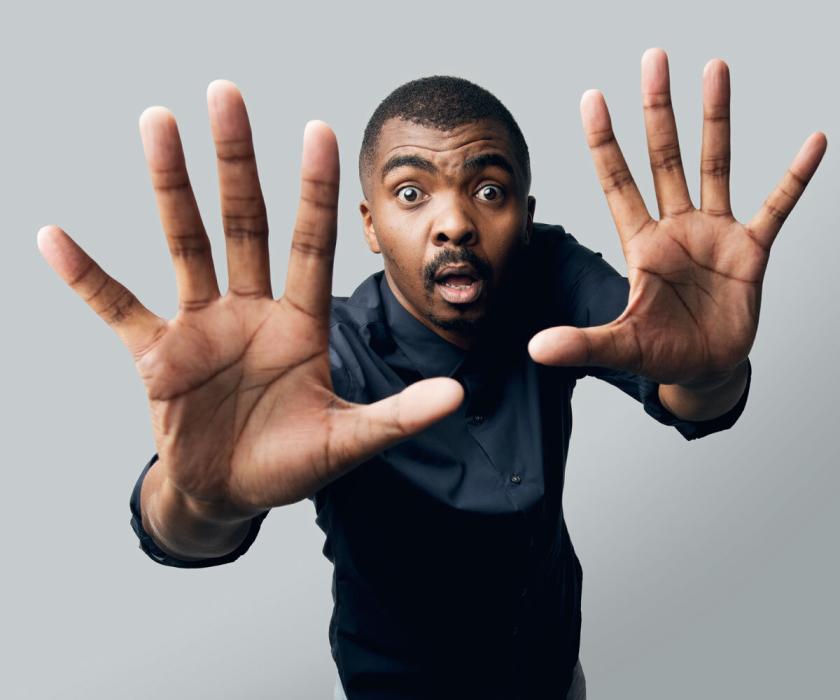Loyiso Gola, twice nominated for Emmy awards for his satire show Late Nite News, has been a big star in South Africa for some years now but this show should help cement his reputation abroad. UK fans will remember his 2018 appearance on Live at the Apollo, where he guyed the audience with his views on the British and Brexit, among other things.
Unlearning, a show written a few years ago but updated for this hour-long Netflix special, is rather lighter on gags than the Apollo material but is entertaining in its own way. In it he weaves a story about living in Apartheid-era South Africa, his family, his education and race. It's a reflective piece about "unpacking what we’ve learned growing up, viewing the world differently and not getting stuck in our own stereotypical mindsets”.
The striking set comes courtesy of the Zeitz Museum of Contemporary African Art in Gola's native Cape Town, and he talks about growing up in the city, and what he used to get up to with his friends, who included a wealthy white boy, Seth. Childhood pranks and later misdemeanours at Seth's stag party – including a visit to a strip club – feature at length, but this is no laddish braggadocio. Rather, Gola has some intersting things to say about masculinity and loyalty.
The tales are sewn together with real erudition; the comic peppers the show with interesting factoids – about The Godfather films, the lobster revolt and Venetian glassmaking among them – as he tries to unpack his values and determine his purpose in life. Now that he's 37, he says, he's examining where his life is going, but he won't be looking for answers in the Bible, which tells us to love thy neighbour. “Have you ever lived in a [n apartment] complex? Fuck my neighbour,” he cries.
The seemingly unconnected stories come together as Gola makes some pertinent points about race, and how he has had to unlearn things deeply drilled into his psyche during the Apartheid years – that poverty and suffering are synonymous with blackness, for instance.
He ends on a hugely hopeful note by talking about his mother's struggle to overcome the barriers that white South Africa put in her way to completing an education that her intelligence deserved. He, too, is a clever guy, and this a show that makes you think as well as laugh.














Add comment